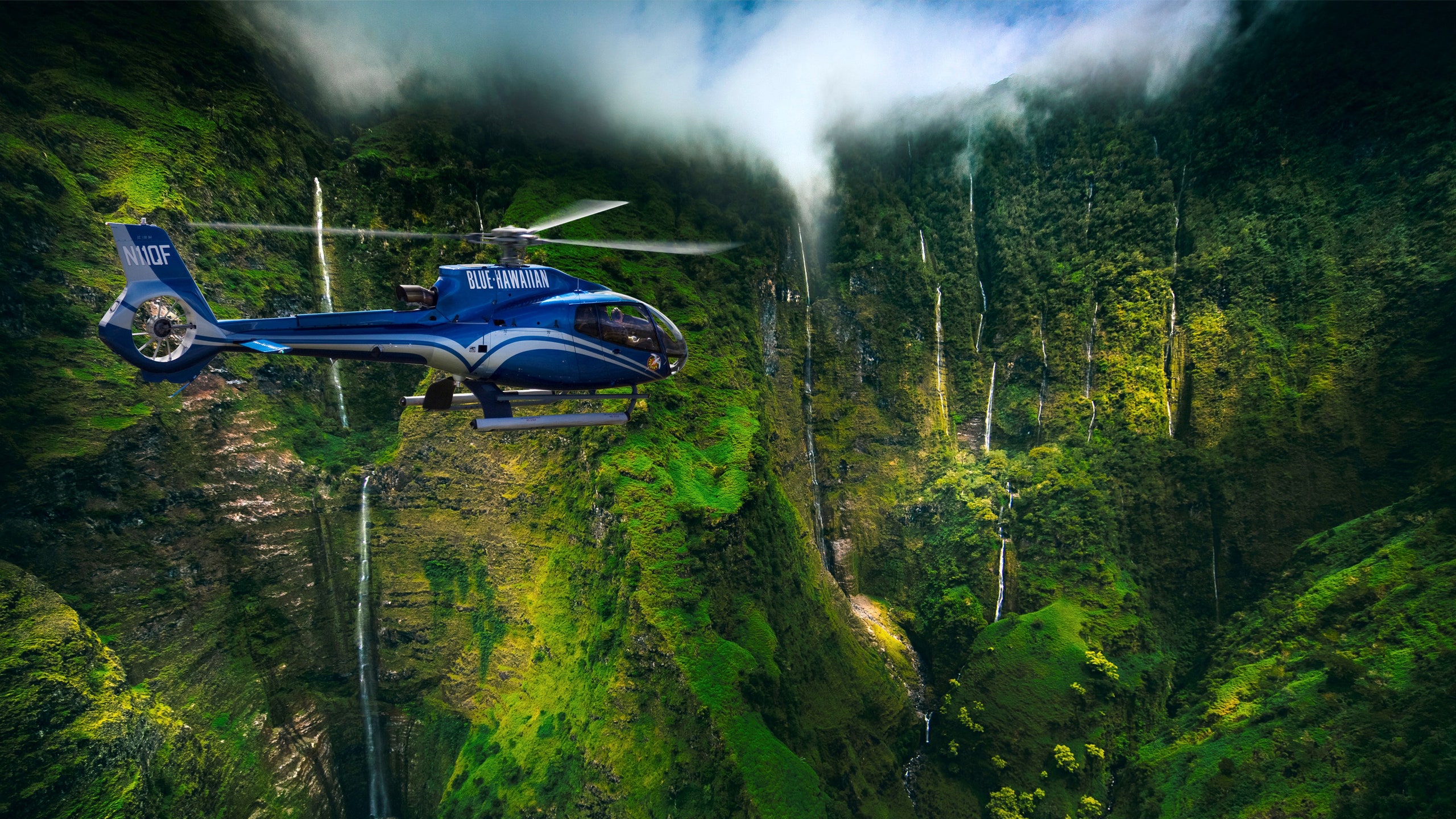Hawaiian Tours for Seniors offer a unique opportunity to experience the beauty and culture of Hawaii at a relaxed pace. This guide explores the best islands for senior travelers, considering accessibility, health concerns, and preferred activity levels. We’ll delve into various tour itineraries, ensuring a comfortable and enriching experience for everyone.
From meticulously planned itineraries catering to different mobility needs to detailed discussions on health and safety precautions, we aim to provide a comprehensive resource for seniors planning their dream Hawaiian vacation. We’ll cover everything from choosing the perfect island and selecting suitable accommodations to budgeting and finding the best deals, ensuring a stress-free and unforgettable trip.
Suitable Hawaiian Islands for Senior Travelers
Planning a Hawaiian vacation for senior travelers requires careful consideration of accessibility, pace of life, and environmental factors. Choosing the right island can significantly enhance the enjoyment and safety of the trip. This section will highlight three islands particularly well-suited for older adults, focusing on their unique attributes and potential health considerations.
Island Suitability for Senior Travelers
Three Hawaiian islands stand out as particularly suitable for senior travelers: Maui, Oahu, and Kauai. Each offers a different experience, catering to varying preferences and needs.
Maui: A Blend of Relaxation and Activity
Maui offers a balanced experience, combining opportunities for relaxation with accessible activities. Many resorts and hotels provide amenities specifically designed for seniors, such as accessible rooms, elevators, and on-site assistance. The island’s diverse landscapes, from the tranquil beaches of Wailea to the stunning Road to Hana, can be enjoyed at a leisurely pace. Gentle activities like whale watching tours (seasonal), scenic drives, and exploring charming towns like Paia are readily available. The climate is generally warm and sunny, but seniors should be mindful of the strong sun and take necessary precautions, such as using high SPF sunscreen and wearing hats. Heat exhaustion is a potential concern; staying hydrated and taking frequent breaks in shaded areas is crucial.
Oahu: History, Culture, and Convenient Amenities
Oahu, home to Honolulu, provides easy access to a wide range of amenities and services. The island boasts excellent healthcare facilities, numerous accessible restaurants, and a well-developed transportation system. While bustling Honolulu offers vibrant city life, quieter areas like Waikiki offer more relaxed options. Seniors can explore historical sites like Pearl Harbor (with accessible options available), enjoy leisurely strolls along Waikiki Beach, or take a guided tour of the island’s cultural landmarks. The climate is similar to Maui, with warm temperatures and sunshine. However, the humidity can be higher, so seniors should stay hydrated and be mindful of potential heat-related illnesses.
Kauai: Natural Beauty and Tranquil Pace
Kauai, often referred to as the “Garden Isle,” offers a slower pace of life and stunning natural beauty. While some areas may require more physical exertion, there are plenty of accessible options for seniors. Gentle boat tours along the Na Pali Coast, exploring the Wailua River by boat, or enjoying the lush scenery from accessible viewpoints are ideal. The island’s laid-back atmosphere promotes relaxation and rejuvenation. Kauai’s climate is generally milder than other islands, but rain showers are common. Seniors should pack accordingly, including rain gear and comfortable walking shoes. The lush vegetation can lead to higher humidity, again emphasizing the need for hydration and caution against heat-related illness.
Health and Safety Considerations
Planning a Hawaiian vacation requires careful consideration of health and safety, particularly for senior travelers. The warm, tropical climate offers many benefits, but it also presents potential health challenges that should be addressed proactively to ensure a safe and enjoyable trip. Understanding these risks and taking preventative measures will contribute significantly to a worry-free vacation.
Potential Health Risks and Preventative Measures
The Hawaiian climate, while idyllic, can pose certain health risks for seniors. Heatstroke is a significant concern, especially during the hotter months. Dehydration is a major contributing factor. While altitude sickness is less of a concern given the islands’ relatively low elevations, other factors such as pre-existing conditions can exacerbate health issues.
- Heatstroke Prevention: Stay hydrated by drinking plenty of water throughout the day, even if you don’t feel thirsty. Limit strenuous activity during the hottest parts of the day (typically midday). Wear light-colored, loose-fitting clothing and use sunscreen with a high SPF. Seek shade frequently and take breaks in air-conditioned environments.
- Dehydration Prevention: Carry a reusable water bottle and refill it often. Avoid excessive alcohol consumption, as it can dehydrate you. Consume electrolyte-rich drinks, especially after physical activity.
- Managing Pre-existing Conditions: Consult your physician before traveling. Ensure you have sufficient medication and understand how to manage your condition in a warm climate. Carry a detailed medical history and a list of your medications.
Emergency Medical Services in Hawaii
Hawaii boasts a comprehensive network of emergency medical services across all islands. Emergency medical technicians (EMTs) and paramedics are readily available, and hospitals are equipped to handle a wide range of medical emergencies. The emergency number to dial is 911, just as in the continental United States.
Response times can vary depending on location and the severity of the emergency. However, air ambulances are available for rapid transport between islands if necessary. Many hotels and resorts also have on-site medical personnel or can readily assist in contacting emergency services.
Recommended Vaccinations and Precautions
Before traveling to Hawaii, it’s advisable to consult your doctor regarding necessary vaccinations. While no specific vaccinations are mandated for visitors, routine vaccinations such as influenza and tetanus-diphtheria are always recommended. Additionally, depending on your individual health history and travel itinerary, other vaccinations might be considered.
Beyond vaccinations, taking other precautions is crucial. These include: practicing good hygiene, such as frequent handwashing; being mindful of food and water safety (stick to bottled water and well-cooked foods); using insect repellent to prevent mosquito bites; and being aware of potential hazards such as strong ocean currents and sun exposure.
Visual Representation of Hawaiian Scenery
Hawaii’s stunning landscapes offer a wealth of visually appealing scenes perfect for senior travelers seeking relaxation and cultural immersion. The islands’ diverse geography provides opportunities for gentle exploration and moments of tranquil beauty, fostering a sense of peace and rejuvenation. The following examples showcase the visual richness of the islands, specifically highlighting aspects beneficial for senior visitors.
Calming Coastal Scene at Sunset
Imagine a gently sloping beach of fine, pale sand, the grains warm underfoot. The turquoise water laps softly at the shore, creating a rhythmic, soothing sound. The sun, nearing the horizon, paints the sky in a breathtaking palette of soft oranges, pinks, and purples, reflecting beautifully on the calm ocean surface. The air is warm and humid, carrying the gentle scent of plumeria blossoms. Nearby, lush green palm trees sway gently in the breeze, their fronds rustling like whispers. The overall scene evokes a feeling of serene tranquility, a perfect setting for quiet contemplation and relaxation. The muted, warm color palette is calming to the eyes, and the slow, repetitive sounds of the waves are naturally therapeutic.
Cultural Landscape: A Traditional Hawaiian Village
This scene shifts from the natural beauty of the coast to the rich cultural heritage of Hawaii. Picture a traditional Hawaiian village nestled amongst rolling green hills. Homes, built in the style of hale, feature natural materials like wood and thatch, showcasing a harmonious blend with the environment. The colors are earthy and muted – browns, greens, and the natural beige of the volcanic rock formations that often serve as backdrops. The air is filled with the sounds of gentle conversation, perhaps the strumming of a ukulele, and the chirping of birds. Visitors might observe craftspeople creating traditional items, or perhaps a group practicing a hula dance, their movements fluid and graceful. The visual experience is rich in cultural detail, offering a glimpse into the history and traditions of the islands. The scene promotes a sense of connection to the land and its people, offering a culturally enriching and visually stimulating experience for senior travelers.
Closing Summary
Planning a Hawaiian vacation as a senior doesn’t have to be daunting. With careful consideration of accessibility, health, and budget, a truly memorable and relaxing experience awaits. By utilizing the information provided in this guide, seniors can confidently embark on a journey filled with cultural immersion, breathtaking scenery, and the warm hospitality of the Hawaiian Islands. Remember to prioritize your comfort and enjoy the journey!




